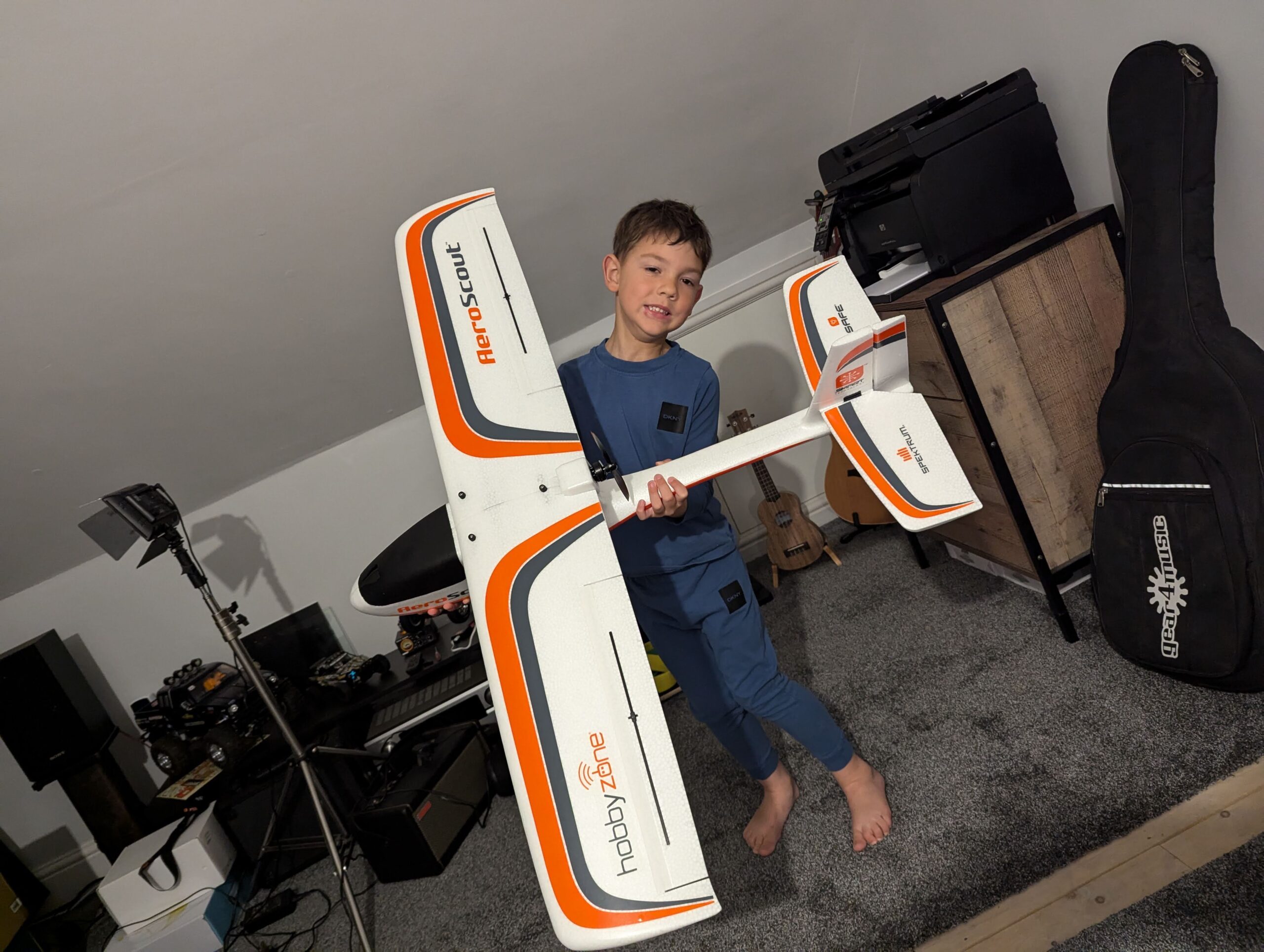I wanted to write this as a reflection on my experience with a model flying club I recently tried to join. This isn’t something I’ll send directly to them – it’s a personal note to myself on what went well, what didn’t, and some valuable lessons about flexibility and customer experience that apply to business and life alike.
Not too long ago, I got hooked on the idea of learning to fly RC airplanes. I’d been into RC cars for a while, and while the tech is similar (same batteries, motors, servos, ESCs), RC planes add two big challenges: legal compliance and the controls.

From a legal standpoint, RC flying requires compliance with the CAA’s standards. You need a current Flyer and Operator ID and, ideally, insurance (I signed up for BMFA membership for this). So, there’s quite a bit of admin to tackle even before you can get started.
The controls are another challenge – RC planes are completely different from cars. The controller itself is more complex, with two sticks and loads of switches, and flying in manual mode especially requires serious practice. Luckily, there are simulators that connect with an actual RC controller, which helped me build some basic skills and coordination. But it still takes time to reprogram those brain cells for flight mechanics – simulation practice is definitely a must.

Finally, after getting all my legal requirements, equipment, and some sim time sorted, I was ready for my first real flight! I arrived at the club, eager to launch my model. But instead of getting to fly, I spent an hour listening to club history, rules, and other details. Interesting? Sure. But they didn’t have any real intention of letting me fly that day – only by chance did my model take off with the club owner on the primary controller, while I used a trainee controller to get just a few minutes of supervised flight.
Then I learned their process: no solo flights until you pass a competency test, which can take a year or more for some members. In the meantime, you need to use a trainee controller hooked to a trainer’s controller – but trainers aren’t allocated. I would have to track down a trainer myself, schedule sessions, and wait for however many sessions it took to satisfy their standards.
My primary goal was simple – find a good field to fly and learn at my own pace. Instead, I walked into what felt like a “training academy.” The club didn’t position itself this way, but with all the rules, supervision requirements, and hurdles, it certainly felt like it.
I even asked about a more intensive, short-term training option to help me fly solo sooner. But the response was clear: “No, not on your terms.” That wasn’t going to work for me, so I moved on. I found another club that was willing to let me fly solo if I could demonstrate safe takeoff, maneuvering, and landing – all in one session. Thanks to the simulator and my model’s SAFE mode, I feel confident I can do this, and will be able to enjoy the hobby much sooner.
Key Lessons Learned
- Listen to your customers – Make them feel understood and valued.
- Be flexible – There’s usually a way to satisfy both sides.
- Avoid unnecessary authority – In any group, aim to be a team member, not a boss.
- Remember, you’re an option – Customers can go elsewhere if they feel restricted.
Additional Reflections for the Future:
- Reduce complexity wherever possible – In any role, whether in business, parenting, or daily life, look for ways to simplify. Reducing complexity not only makes processes easier to follow but also creates a more approachable and enjoyable experience for everyone involved.
- Communicate essential requirements early – When certain rules or requirements are unavoidable, make sure to communicate them clearly and early on. Providing upfront guidance helps set expectations and allows others to feel prepared and respected, rather than overwhelmed or blindsided.
- Foster independence – Encourage those around you, from team members to children, to take responsibility when they’re ready. Learning through experience builds confidence and resilience, and sometimes a gentle nudge toward independence is all it takes.
- Offer support proactively – Instead of waiting for others to seek help, try to anticipate needs and provide guidance or support before they have to ask. This proactive approach not only fosters trust but also strengthens relationships and ensures smoother experiences.
Final Thoughts and Appreciation
In closing, I want to acknowledge the club owner for taking the time to meet with me and for being transparent and respectful throughout the process. He clearly communicated all the rules and expectations upfront, which allowed me to make an informed choice not to join. His approach made it easy to weigh my options and pursue the hobby in a way that aligns with my goals. As for any areas of improvement, I’ll leave those for his own consideration – if by any chance he stumbles upon this piece and sees himself in it.
By capturing these reflections, I hope I can bring these lessons forward, both in my hobby and in my professional life.


Leave a Reply